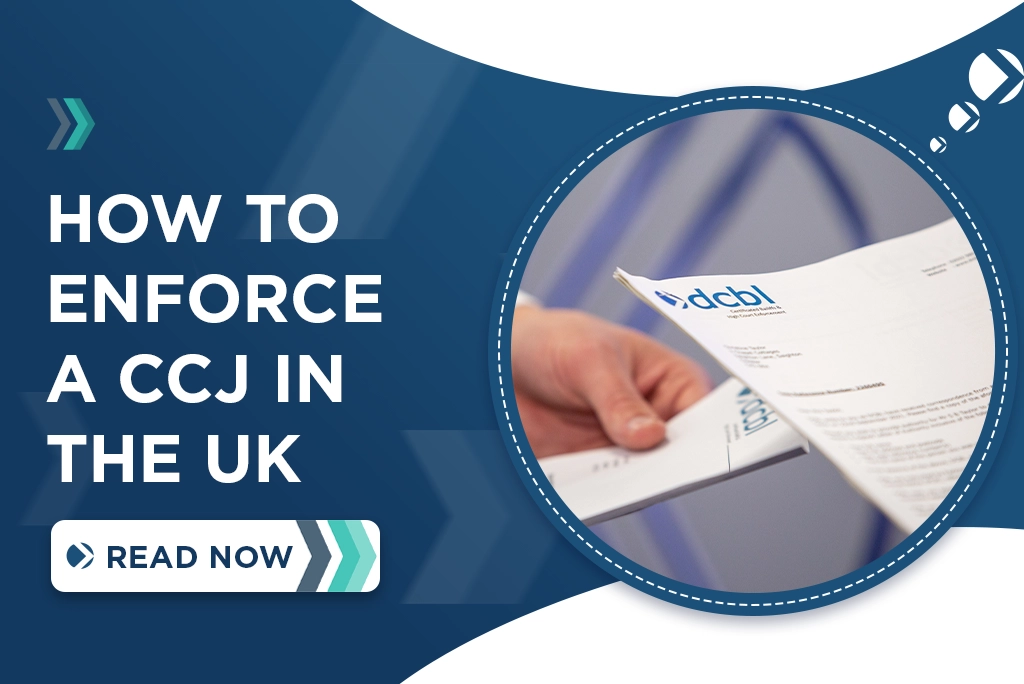
How to Enforce a CCJ in the UK: High Court Enforcement Guide
10th October 2023
Are you seeking advice on how to enforce a CCJ through a High Court Enforcement specialist? DCBL can help with enforcing a County Court Judgment.
In the United Kingdom, obtaining a County Court Judgment (CCJ) against someone who owes you money is essential to recovering your debts.
However, securing a CCJ is just the beginning of the process. To ensure that you actually receive the money owed to you, you need to know how to enforce a CCJ effectively.
This article will provide a step-by-step guide on enforcing a CCJ in the UK through dispute resolution.
What Is a County Court Judgment (CCJ)?
Before delving into the enforcement process, let’s briefly recap what a County Court Judgment (CCJ) is.
A CCJ is a court order issued by a county court in England, Wales, or Northern Ireland, or the Sheriff Court in Scotland, stating that someone owes you money.
The court issues this if they agree that the person in question owes money based on the evidence provided.
There are two main types of CCJs – a ‘Regular CCJ’ and an ‘Admission CCJ’.
A Regular CCJ occurs when the debtor fails to respond to the initial court claim. The court determines the amount owed, and the debtor must pay according to the court’s judgment.
An Admission CCJ comes into play if the debtor admits to the debt but needs more time to pay, allowing the debtor to pay in instalments.
If the debtor refuses to acknowledge the court order within the timeframe, a High Court Enforcement specialist can then enforce this.
Steps to Enforce a CCJ – County Court Enforcement
To enforce a CCJ, you must gather as much information as possible about the debtor. This includes their current address, employment status, and any assets they may have.
You can use this information to decide which enforcement method is most appropriate.
There are several methods available to enforce a CCJ in the UK. Depending on the enforcement method you choose, you will need to complete specific forms provided by the court.
Ensure that you fill out these forms accurately and provide all required information.
High Court Writ of Control
If the debtor has assets, you can instruct High Court Enforcement Officers (HCEOs) to take control of and sell their belongings to cover the debt.
Should you require more information, read our expert guide on “What Is a High Court Writ“.
Attachment of Earnings Order
If the debtor has a job, the creditor can deduct a percentage of their wages to repay the debt.
This deducted amount is then paid to the creditor until the debt, along with any court-ordered fees and interest, is fully settled.
The court assesses the debtor’s financial situation to determine a fair and affordable deduction amount, ensuring that the debtor can still cover their essential living expenses.
Charging Order
You can secure the debt against the debtor’s property, which will be paid when the property is sold. This is known as a Charging Order.
This mechanism allows creditors to protect their financial interests when the debtor owns real estate or other valuable property.
Third-Party Debt Order
This allows you to freeze money in the debtor’s bank account or money owed to them by a third party, up to the value of the debt. These frozen funds will arrive at the creditor to settle the debt.
Third-Party Debt Orders provide a means for creditors to access funds owed to the debtor by others, ensuring they can recover the outstanding debt.
Order to Obtain Information:
If you’re unsure about the debtor’s financial situation, you can request an Order to Obtain Information. You will use this to learn more about their assets and income.
This information is crucial for the creditor to assess the debtor’s ability to repay the debt and choose the most appropriate enforcement method.
Enforcing a County Court Judgment – High Court Enforcement Specialists
For over 20 years, DCBL has been an industry leader when it comes to CCJ enforcement services.
If you have a CCJ for money someone owes to you or your business, our specialists can effectively enforce this.
Working from 5 strategically placed offices across the UK ensures we provide enforcement nationwide to our clients.
Our “One Solution” service means that if case requires escalation to litigation, our sister company, DCB Legal, can assist in providing a seamless journey.
The ethical and effective service we provide to our clients has resulted in over 1800+ five-star reviews on Trustpilot.
This, combined with our 98% client retention rate and brand awareness, means we collect 25% more than our competitors.
For more information on how we can assist you with CCJ enforcement, get in contact with one of our specialists.






